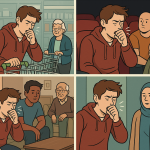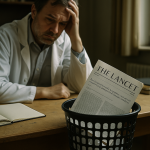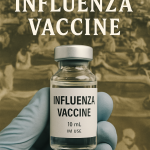Not just trust. Not just truth. We lose the systems holding everything together.
We don’t think twice when we drive over a bridge.
We don’t check the wings before boarding a plane.
We don’t test our drinking water before taking a sip.
We don’t open up our smartphones and inspect the circuitry.
We trust that someone who knows more than we do—an engineer, a technician, a plumber, a pilot—has done the work right.
And yet when it comes to our health—something more complex, more high-stakes, and more personal—we’re increasingly told:
“Don’t trust the experts. Do your own research.”
It sounds empowering. But it’s quietly, dangerously hollow.
Because when we lose trust in expertise, we don’t gain wisdom.
We gain fear.
We gain confusion.
And we lose something we never realized was holding us up.
🏗️ Our Lives Run on Invisible Systems
Imagine a world where:
- Every bridge had to be double-checked by each driver.
- Every faucet needed a personal lab test.
- Every medical recommendation came down to a gut feeling and a YouTube video.
We would be paralyzed.
Expertise works not because it’s perfect, but because it’s systematic.
Because it’s built on accountability, testing, retesting, and iteration.
We forget that medicine isn’t just pills. It’s a system.
One that stretches across clinics, labs, emergency rooms, rural towns, urban hospitals, peer-reviewed journals, and decades of evolving research.
⚠️ But That Trust Has Been Eroded
And not by accident.
Social media influencers, alternative wellness brands, and conspiracy entrepreneurs have figured out that there’s money in doubt.
They tell you “they’re all in on it”—but they’ve got your back.
They sell you “the real truth”—in the form of a supplement, a detox, a course, a feeling of control.
But when you tear down trust in expertise, you don’t end up with a clean slate.
You end up with chaos.
With thousands of voices, all claiming to be right—no accountability, no correction, no safety net.
🔧 The People Behind the Systems
We talk about “experts” like they’re a faceless group in lab coats or suits. But that’s never been true.
An engineer somewhere—a real person—sweated over the load calculations that keep your family safe as you cross a bridge.
An immunologist—someone’s daughter, someone’s mom—spent over a decade in school and lab work so your kids wouldn’t have to suffer through measles or meningitis.
A public health worker burned out not from bureaucracy, but from trying to stop an outbreak from hitting your town.
They did it for you. For all of us.
Not for fame. Not for money. Not because it was easy.
But because they believed in something bigger: that their knowledge could make the world safer, kinder, better.
These aren’t shadowy figures in back rooms.
They’re dedicated people, and their work is a labor of love.
They deserve admiration—not suspicion.
Last Updated on June 27, 2025







